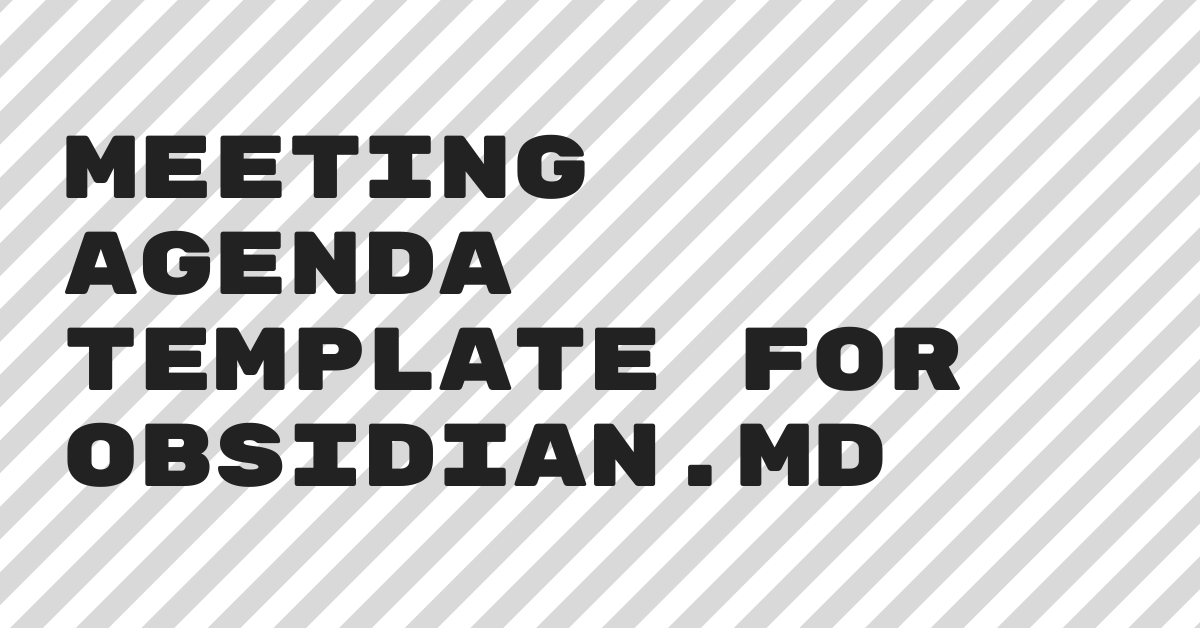Your cart is currently empty!

My meeting agenda template for Obsidian
My meeting agenda template for Obsidian is fairly basic and follows a few simple rules for having good meetings:
- All good meetings have a defined objective.
- All good meetings have an agenda.
- And all good meetings end with action items for people to take away.
Obsidia provides a pleasant experience for taking notes on its own, but you can really unlock the value of the tool by building out a set of Obsidian templates. As a simple markdown editor, you need to create your own templates, but once you do, it becomes shockingly easy to keep your personal knowledge base up to date.
One of my personal templates that I use most often is this meeting agenda template for Obsidian.
A section by section look at my meeting agenda template for Obsidian
The first section I use is the meta-data section that I include on all templates, as noted here in my last post on using Obsidian for personal knowledge management.
# Meeting Title
- **Date:**
- **Start Time:**
- **End Time:**
- **Attendees:** The next section is the meeting’s objective. If a meeting does not have a defined objective before the start time, the meeting should be cancelled. (The lowercased definedobjective heading should be changed to the meeting’s objective.)
## Meeting Objective
```
This space should also be used for introductions, if necessary
```
### definedobjective
And then the meeting agenda. This is typically a list of items that support the meetings defined objective. What issue will you discuss or what questions need to be answered?
## Agenda
-
- Notes and decisions is a free-form section. No templating required, as this is typically a scratchpad for notes taken during the meeting:
## Notes and Decisions
```
Before proposing solutions, ensure all parties are fully understanding of the issue or question being discussed
```But this section will be refined at the end of the meeting to ensure that the defined objective was met. Once you answer all your questions, assign the work. If there’s work to do to understand next steps, assign that work out instead. Regardless, some, or all members of the meeting, must leave with defined action steps:
## Action Items
```
All action items should have an owner noted
```
1.
2. This meeting format is simple by design, but it is definitely a one-size-fits-most tool that will ensure that your meetings have a reason for happening.
I also store every meeting agenda in my Obsidian knowledge base indefinitely, and try to ensure the notes are linked to relevant projects. This comes in handy when it comes time to perform a retrospective as well.
A complete Gist of the meeting agenda
Here’s a link to a complete GitHub gist covering the contents noted above

Leave a Reply